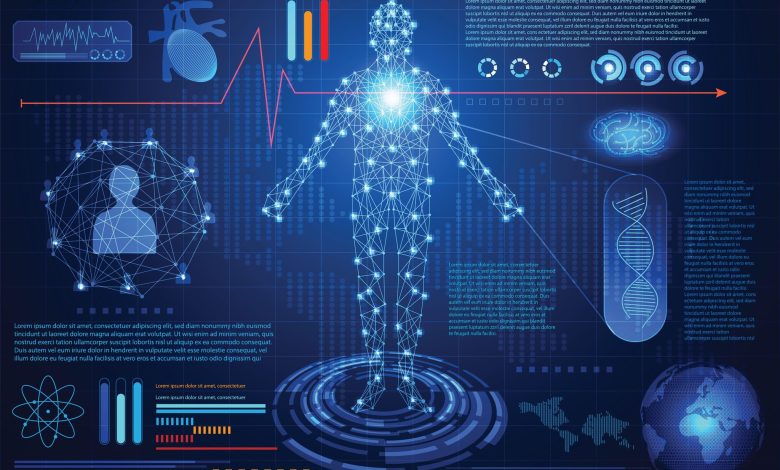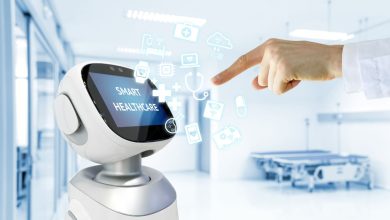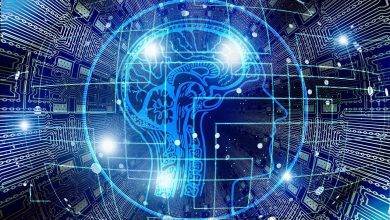The impact of AI on healthcare diagnostics

I will discuss The impact of AI on healthcare diagnostics in this blog post. Healthcare diagnosis and administration are two areas where AI is seeing rapid adoption in the medical profession. Artificial intelligence algorithms can evaluate medical images, including X-rays, MRIs, ultrasounds, CT scans, and DXAs, to aid doctors in making faster and more accurate diagnoses. Rapid AI analysis of large quantities of clinical paperwork aids doctors in spotting illness indicators and patterns that could otherwise go unnoticed. Using massive Electronic Health Records (EHRs), AI may also help with patient diagnosis. Accurate diagnosis is essential in healthcare systems worldwide, and artificial intelligence and machine learning have recently emerged as potent technologies for facilitating this process. The goal of AI in healthcare is not to displace doctors but to maximize the value of electronic health records (EHRs) and other forms of medical data.
AI in Healthcare Diagnostics
AI has revolutionized healthcare diagnostics, altering how we detect and treat illnesses. Artificial intelligence algorithms with incredible speed and accuracy can perform medical image analysis, including X-rays, MRIs, ultrasounds, CT scans, and DXAs. This technology may enhance the diagnostic procedure’s speed, efficiency, and prediction accuracy.
AI’s speed in analyzing large quantities of clinical data is a significant benefit in healthcare diagnostics, as it helps doctors spot previously missed illness indicators and patterns. More accurate diagnoses and individualized therapies are possible because of the ability of AI algorithms to recognize patterns and links within medical data. In addition to bettering patient care, this boosts healthcare research and efficiency.
Artificial intelligence (AI) in healthcare diagnostics is not meant to replace doctors but to supplement their knowledge by drawing on the most relevant data from EHRs and other medical sources. Analyzing massive amounts of data aids medical practitioners in making better treatment choices for their patients. Helping physicians under challenging circumstances, AI may also assist with identifying uncommon diagnoses or odd presentations in complicated patients.
Artificial intelligence has shown great promise in medical imaging, which is used for diagnostic purposes. Artificial intelligence (AI)-based support has been created to improve clinical judgments in breast imaging and help detect lung nodules on CT images, among other applications. AI algorithms that aid in image interpretation may help radiologists provide better treatment to patients by increasing the accuracy of their diagnosis.
Advantages of AI in Healthcare Diagnostics
There are several ways in which AI might improve medical diagnosis.
Improved accuracy:
AI algorithms may promptly analyze medical imaging and large quantities of clinical paperwork, allowing for more accurate diagnoses and individualized therapies.
Enhanced patient care:
By analyzing massive amounts of data and generating insights and suggestions, AI may help healthcare workers improve the quality of their decision-making regarding patient care. The results improve healthcare efficiency and the quality of life for patients.
Cost savings:
By increasing productivity and decreasing the need for unneeded tests and treatments, AI has the potential to save healthcare expenses.
Increased productivity:
AI can increase healthcare workers ‘ efficiency by automating administrative chores and optimizing processes.
Medical research:
AI may aid the collection and analysis of data for medical research.
Real-World Applications of AI in Healthcare Diagnostics
Several medical diagnostic uses of artificial intelligence (AI) have been developed.
Medical imaging:
Artificial intelligence (AI) systems can analyze medical images, including X-rays, MRIs, ultrasounds, CT scans, and DXAs, helping doctors diagnose illnesses faster and more precisely.
Disease prediction:
Through the use of remote patient monitoring and AI’s ability to anticipate the possibility of the development of specific illnesses.
Clinical decision support:
Medical professionals may make better judgments and more accurate diagnoses with the help of AI.
Automatic measurements:
Automatic measures based on AI may provide accurate echo quantification in a short time, which patients and medical personnel will appreciate.
Rare diagnoses:
Artificial intelligence (AI) may aid physicians in difficult circumstances by identifying uncommon illnesses or odd appearances.
Clinical documentation:
AI can quickly analyze vast amounts of clinical documentation, helping medical professionals identify disease markers and trends that would otherwise be overlooked.
Diagnosis of disease:
The COVID-19 pandemic is only one of several illnesses that may be screened for and diagnosed with AI.
Drug and vaccine development:
AI can contribute to the development of new drugs and vaccines.
Challenges and Considerations
Artificial intelligence (AI) adoption in healthcare diagnostics presents several obstacles and factors to think about, including:
Data challenges:
Access to high-quality, consistent, diversified datasets is essential for successfully adopting AI. However, it may be challenging to integrate data from many sources and formats, which can lead to missing or inconsistent information.
Technology development:
Artificial intelligence algorithms and models that can generalize medical data consistently and deliver reliable suggestions present a significant challenge. Differences in infrastructure, coding standards, EHR platforms, and laboratory instruments may all make generalization easier.
Clinical implementation:
Translating AI algorithms into clinical practice and ensuring their trustworthy application is challenging. Detecting potential threats and untoward occurrences necessitates constant vigilance and maintenance of AI systems.
Ethical and social issues:
When discussing AI’s ethical and responsible use in healthcare, privacy, security, prejudice, transparency, and responsibility are just some issues. Building trust and ensuring the ethical deployment of AI systems requires attention to these concerns.
Trust, legal, and liability issues:
Successful use of AI in healthcare requires establishing credibility among clinicians, patients, and policymakers. Responsibility for mistakes or malfunctions in AI systems, as well as other legal and liability concerns, needs to be worked out.
Integration barriers:
It might be challenging to incorporate AI into preexisting healthcare systems and processes. Change resistance, a lack of interoperability, and the need for workforce education and training are just a few of the obstacles that must be overcome.
Validation and evaluation:
Before broad use, validating and evaluating AI systems’ performance and therapeutic effects is essential. We need rigorous assessment studies to ensure AI’s security, efficacy, and effectiveness in healthcare diagnostics.
The impact of AI on healthcare diagnostics- Conclusion
In conclusion, The impact of AI on healthcare diagnostics and the use of AI in medical diagnostics has the potential to alter healthcare delivery radically. The use of AI in healthcare has the potential to increase diagnostic precision, boost patient satisfaction, and simplify administrative tasks. AI algorithms help doctors and nurses make better diagnoses and provide more individualized care by evaluating patient data, medical imaging, and other clinical paperwork.
Data integration and standardization, the creation of reliable AI algorithms, ethical and social concerns, trust and regulatory problems, integration hurdles, and validation and assessment are all examples of these difficulties. It will need the combined efforts of healthcare providers, government agencies, AI researchers, and developers to overcome these obstacles.
Despite its shortcomings, artificial intelligence has enormous potential to improve medical care. It can improve patient health outcomes and streamline healthcare delivery. AI will remain crucial in healthcare diagnosis as technology and research advances to assist patients and healthcare professionals.
Finally, AI in healthcare diagnostics may improve diagnostic accuracy, patient care, and workflows.



